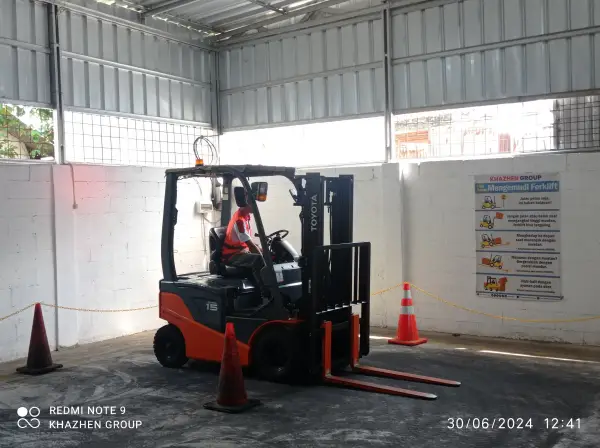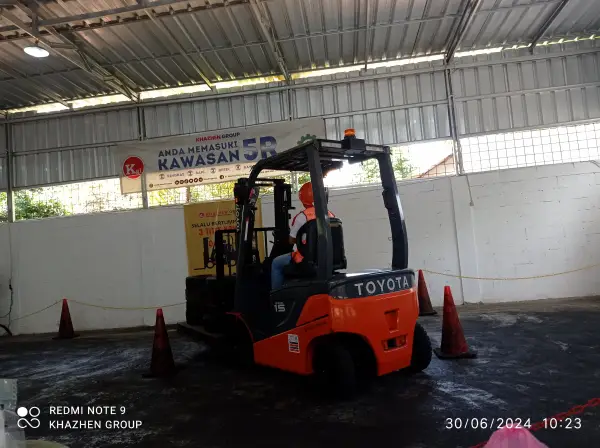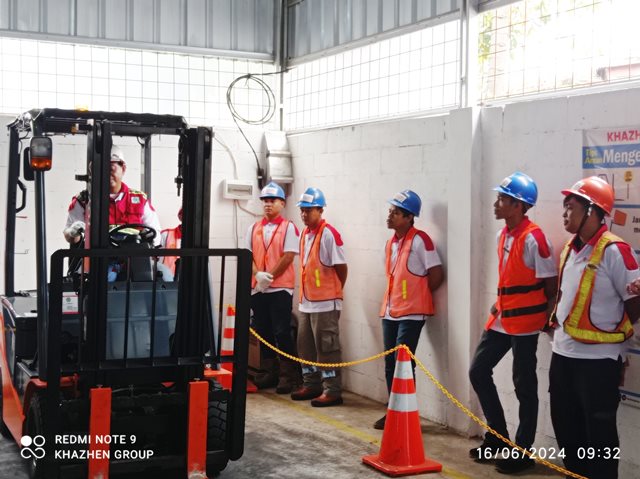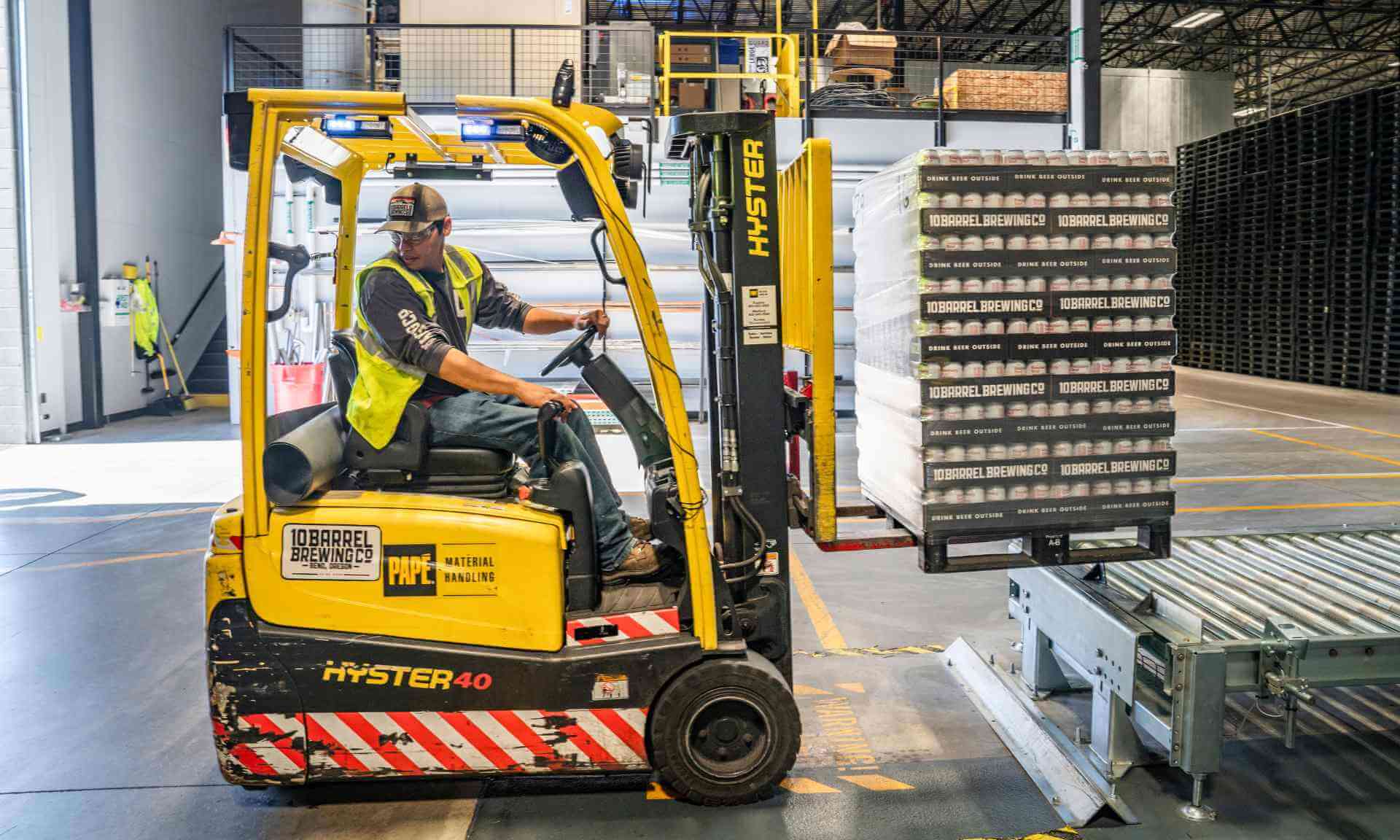In the world of material handling, the role of a forklift operator is crucial. Forklift operator training is not just about driving the vehicle but also understanding the principles of safety and efficiency in the workplace. This article will comprehensively discuss forklift operator training.
Importance of Operator Training
Forklift operator training is not just legal compliance but also an investment in safety and productivity. Well-trained operators can reduce the risk of accidents, and product damage, and optimize warehouse operations.
Types of Training Available
- Basic Training: Understanding forklift controls, basic operations, and equipment maintenance.
- Safety Training: Focus on safety measures, including the use of seat belts, communication with coworkers, and emergency actions.
- Advanced Training: For operators who want to enhance their skills, such as lifting complex loads and navigating in tight spaces.
Training Process
- Theory: Basic understanding through theoretical classes, discussing operational principles, and safety aspects.
- Simulation: Practical exercises using forklift simulators to familiarize operators with real-world situations.
- Field Experience: Hands-on training at the work site to face real challenges.
Certification and Licensing
After completing the training, forklift operators must pass a certification exam. This certification confirms that they have understood and can implement the knowledge gained during the training. A license is also often required to ensure legal compliance.
Applying Training in Daily Practice
Training is not the end of the journey but the beginning of skill development. This article emphasizes the importance of continually improving skills through field experience and ongoing learning.
Building a Safety Culture
In an organization, it is important to build a safety culture around forklift use. This involves everyone, from management to operators, working together to create a safe and efficient working environment.




